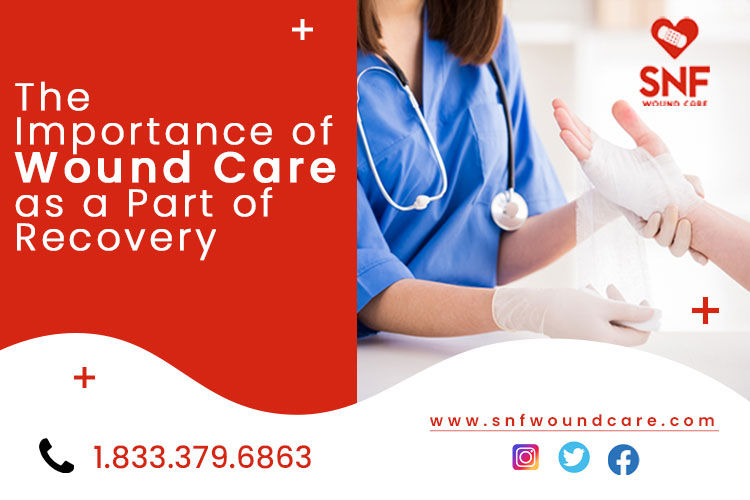
Wound care is a must for everyone who deals with injured people. A significant element of healthcare may need the expertise of a specialist nurse from the wound learning academy. Patients' wounds are cared for by the nurse in charge of identifying the optimum method of healing. It's also important for them to keep an eye on the skin of their patients.
Wound care is an essential responsibility for nurses and other medical professionals. Wound care is one of the most vital tasks, and this article discusses both the art and science of it. Preventing infections and even saving lives can be accomplished by health care professionals who acquire this competence.
Wound care: What is it?
When you're taking care of a wound, there are a lot of things to think about. These factors include the type of injured area, the recovery period, and the best way to treat a wound to keep it from getting worse.
When the wound is properly diagnosed and all the factors have been taken into account, the best treatment options can be found. Often, stitches, bandages, and medicine are also there.
Wound care is very important when you're healing but one must have wound care certification. Infection and other problems can happen if you don't take care of your wound properly. This also helps speed up the healing process and leaves less scarring behind.
● Preventing a disease
By paying attention to the wound dressings and bandages all the time, the risk of infection and other problems is greatly cut down. There are many ways that a healthcare professional can make medically important decisions. They can change dressings and note how the wound is healing. They can also look at things like bleeding and temperature and smell to figure out what's going on. As a general rule, wounds should be cleaned once a day with a disinfectant for wound care and clean water or saline. Clean dressings should also be put on the wounds.
● Speeds up healing
A myth that could be dangerous is that wounds heal faster if they're left open, which isn't true, and covering the wound as it heals actually speeds up the wound healing process. Furthermore, bandaging that is properly cared for protects against infection even more.
● Scarring is lessened
To keep scars from forming, keep the wound soft while it's healing. This helps to keep the wound from becoming hard. Antibiotic ointments and other treatment options recommended by your doctor can keep the skin around the wound soft and pliable as it heals. This will help keep the wound from becoming infected.
Who Takes Care of Wounds?
What nurses do, where they work, and how long they have been doing it can all affect how much wound care they provide to patients. With practice from a Wound Care Skilled Nursing Facility, you may become an expert at treating wounds as a nurse. These nurses might specialize in wound care, continence care (CCCN), or ostomies (COCN). If they want to do so, they can earn the title of "Certified Wound Ostomy and Continence Nurse" (CWOCN).
These nurses are employed in a variety of settings, including hospitals, long-term care facilities, and home health agencies. Most Wound Care Nurses manage several wound-care programs, offer guidance on how to treat wounds effectively, and provide hands-on care and education for their patients.
If you want to ensure the health and safety of your nursing patient, you must also make sure that they receive adequate wound-care services. This specialism includes caring for wounds, assisting with the healing process, and improving the quality of life of patients. Take these precautions to avoid infections and other issues.
Conclusion
Getting a wound care certification is a good option. More employment, higher compensation, a better reputation at work, and more job satisfaction are all possible outcomes of this career path. There is a solid job market for CWCNs. In hospitals, nursing homes, and other facilities, there is a high demand for these professionals. Obesity and diabetes are so ubiquitous that this particular field is probably guaranteed to remain steady.

Comments